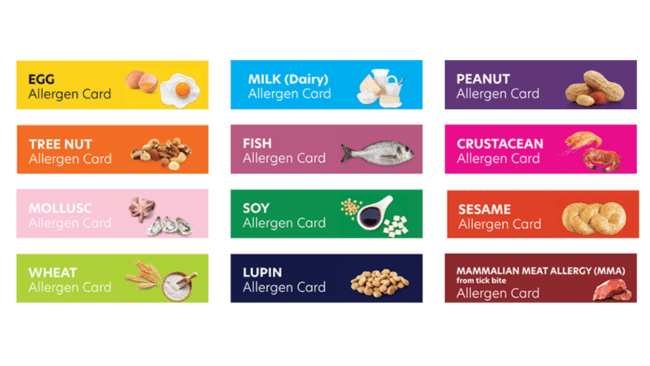My baby could have an allergy, but I have to wait 5 months to confirm it
After a negative reaction to prawns one evening, we had no idea if it was a case of food poisoning or something more sinister, and a specialist shortage means we won’t know for months to come.

Parenting
Don't miss out on the headlines from Parenting. Followed categories will be added to My News.
When I was pregnant, everyone told me how hard the newborn phase would be and to brace myself for a wild ride.
After having my little one 13 months ago, I can say with absolute certainty I’d take the newborn phase over having a toddler any day of the week.
There’s the endless curiosity for everything in the house except their toys, the stinky poops, the clumsiness and, for me, the toughest part, introducing solids.
Want to join the family? Sign up to our Kidspot newsletter for more stories like this.

“Your baby is ready for solids”
After a check-up with our pediatrician, he advised our baby was showing all the signs of being ready to introduce solid food into her diet.
I remember thinking she still seemed so little, and I wasn’t ready for the mission of mealtime with a baby, but if she was ready, whether I was or not.
My husband and I made a list of foods to try one by one to rule out potential allergies.
As we made it through pretty much every fruit and veggie, we began on the terrifying allergens.
RELATED: 'I had to move halfway across the world to ease my allergies'
The big bad allergens
According to the Royal Children’s Hospital in Melbourne, the most common causes of food allergy in children are egg, peanut, tree nuts, cow's milk, soy, wheat, fish, shellfish and sesame.
As we approached Christmas, we were mindful of lots of people and lots of food, so we started months prior and slowly tested each one.
Peanuts were the first cab off the rank, and before serving them to her, I remember putting on shoes and socks, keys close by, and my phone fully charged in case I needed to call triple zero and leave the house in a hurry.
Peanuts went off without a hitch, along with almonds, cow’s milk, soy, wheat, sesame and fish.

Fourth time’s a charm
The first two introductions to prawns were also totally uneventful.
However, the third saw her cheeks turn a little red.
We were at the beach at the time and put it down to the hot weather, but I had a little niggle that left me worried, given we were under a beach cabana and there was a cool breeze.
The fourth time our little one had prawns, it didn’t go so well.
Three hours after dinner, she was arching her back in pain and eventually threw up her meal everywhere for 45 minutes.
I put it down to perhaps a bad prawn and thought nothing of it.
A week later, at her 12-month vaccination appointment, I mentioned it in passing to our GP, and she warned of the potential risks of further exposure.
“Next time could be worse”
She explained that allergies can build up in severity with each exposure and recommended I consult a pediatric allergy specialist and keep away from prawns until we’ve been given the all-clear.
I took the referral and gave the clinic a call to book an appointment in the coming weeks.
Ha!
How naive of me.
RELATED: I can't be responsible for your child's allergy at my kid's party

“Wait, you said FIVE months?!”
The receptionist advised there was a five-month wait to see the specialist, and I had to ask twice if I had heard correctly.
She explained pediatric allergy specialists were a dime a dozen and that she could put me on a cancellation list but to lock in the next available one to ensure I’d get to see the specially…eventually.
The first appointment will be a consultation where we’ll explore how to test the allergen and the likelihood of it being anaphylaxis or just an intolerance.
The one area you don’t want to be a leader in
About 20% of people in Australia have allergies, and it's expected that by 2050, the number of Australians with allergies will go up by 70%, reaching 7.7 million.
Australia is the allergy leader, with kids having the highest rate of food allergies globally.
A study in Melbourne found that 40-50% of the kids they looked at had allergy symptoms in their first four years of life.
For more information on food allergy visit www.allergyfacts.org.au and www.preventallergies.org.au
More Coverage
Originally published as My baby could have an allergy, but I have to wait 5 months to confirm it




